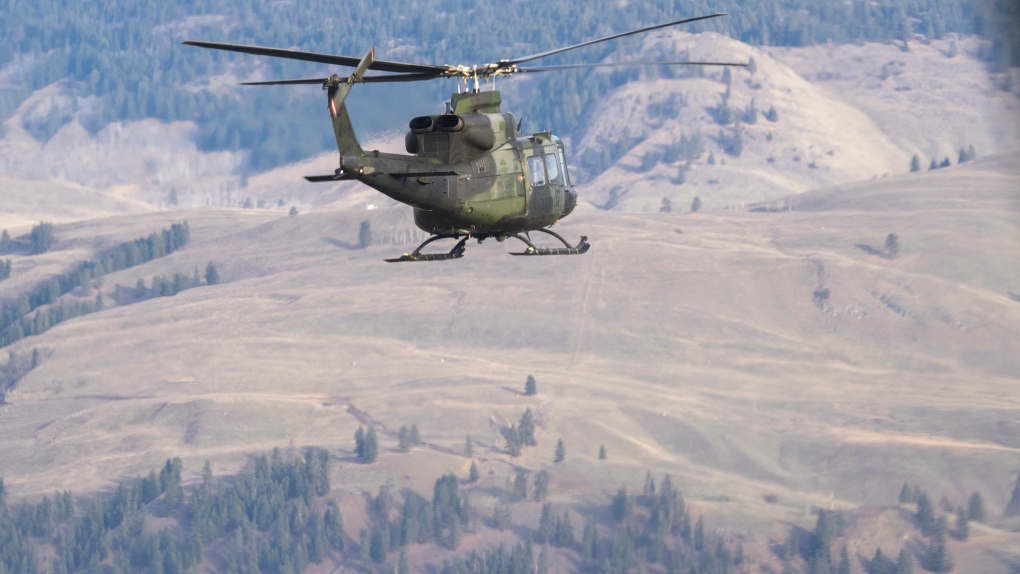Vancouver –
The mayor of a British Columbia community devastated by flooding last month said finding winter housing for displaced residents was his top priority with ongoing recovery efforts.
Princeton Mayor Spencer Coyne said around 300 people in the area are still on evacuation orders and around a third of them will need accommodation.
“We want to keep people in the community,” he said. “If we kick people out of the community, they won’t be able to work and that will add another layer of stress and obstacles to overcome.
Princeton is one of several flood-damaged locations that have entered the recovery phase – a milestone marked by the withdrawal of the Canadian Armed Forces on Friday.
Public Safety Minister Mike Farnworth thanked both military personnel and provincial partners for their help in responding to the destruction caused by the unprecedented precipitation in November in the southwest of the province.
Over the past month, 748 military personnel and nine planes have been assigned to fight the floods. Their work included filling and placing sandbags to protect homes and businesses, building a so-called tiger dam to stop the damage on Highway 1, and delivering over 31,000 kilograms of food, vaccines and other supplies in Kamloops, Chilliwack, Kelowna, Vernon and Merritt.
As conditions improve, Farnworth said recovery efforts will be managed by contractors, non-governmental organizations and a dedicated contingent from the BC Wildfire Service.
He also thanked the provinces of Ontario, Manitoba, Saskatchewan and Alberta for their support during the initial response.
“At times like these, it is heartwarming to know that other provinces and the Canadian Armed Forces are there to be called upon to help,” Farnworth said in a statement Friday.
In Princeton, Coyne said crews were making progress on water lines and a replacement sewer line, as well as other infrastructure repairs. The city’s water supply has been disinfected and as soon as it provides two weeks of negative test results, a no-drink order will be dropped to boil the water.
Housing solutions will target not only residents of Princeton, but those in surrounding communities like Tulameen, Coalmont and along Highway 3, he said. The city is working with the Okanagan-Similkameen Regional District on support, Coyne said.
However, the COVID-19 pandemic has created challenges as collective housing is no longer recommended. Without much hotel or motel space available, he said the community is looking to set up something similar to a labor camp in their industrial park.
“We have water, sewerage, electricity, everything close by so that it can be piped to the buildings and then set up for the interim, so people can have a place to go and stay in the community. “
The biggest challenge right now is funding, Coyne said. A request has been sent to Emergency Management BC and the community may also turn to BC Housing depending on the response.
“We are moving at government speed,” he said, adding that he believed everyone was doing their best to make it work.
BC Housing did not immediately respond to a request for comment.
Emergency Management BC said in a statement it is actively discussing the city’s recovery needs with the mayor, “and continues to support Princeton evacuees with emergency housing and support services as we seek support. longer term in the future “.
The city is working with the Okanagan-Similkameen Regional District to determine how many people will need long-term housing. Some have left town; others still live with friends or family.
The city is also trying to speed up the process of returning people to their actual homes where possible. He waived the building permit fees, so residents can start rebuilding immediately, but some are still waiting for their homes to dry out, Coyne said.
Despite the challenges, which appear to continue to increase with the increase in COVID-19 cases, Coyne said he is proud of his community.
“The way we have been able to come together to support each other is amazing and I am honored to be able to call Princeton my home.”
Farmers in the Fraser Valley and in the interior also received new support on Friday.
Many commercial ranching operations in the Fraser Valley and interior BC have lost their hay and fodder supplies in the flooding, according to a press release from the Ministry of Agriculture.
The Emergency Flood Fodder Program is providing up to $ 1 million in funding from Emergency Management BC to help meet immediate needs, the statement said.
“BC cattle ranchers are resilient by nature, but we recognize how difficult it has been for them as they have had to recover from the thermal dome, wildfires and now flooding,” Minister Lana Popham said in the statement.
“This program will help ensure BC ranchers can care for their animals with enough hay and forage to meet an immediate need.
The BC government said it is working with the BC Cattlemen’s Association and the BC Forage Council to implement the emergency program with the common goal of helping ranchers get back to business.
This report by The Canadian Press was first published on December 17, 2021.

“Coffeeaholic. Lifelong alcohol fanatic. Typical travel expert. Prone to fits of apathy. Internet trailblazer.”
